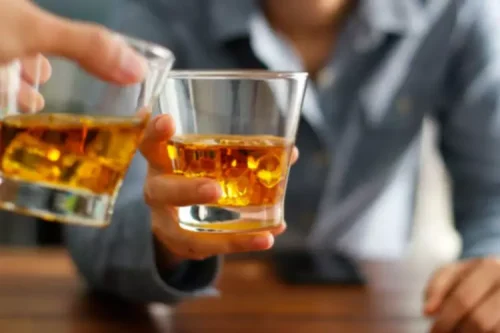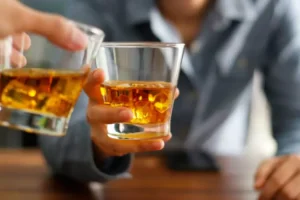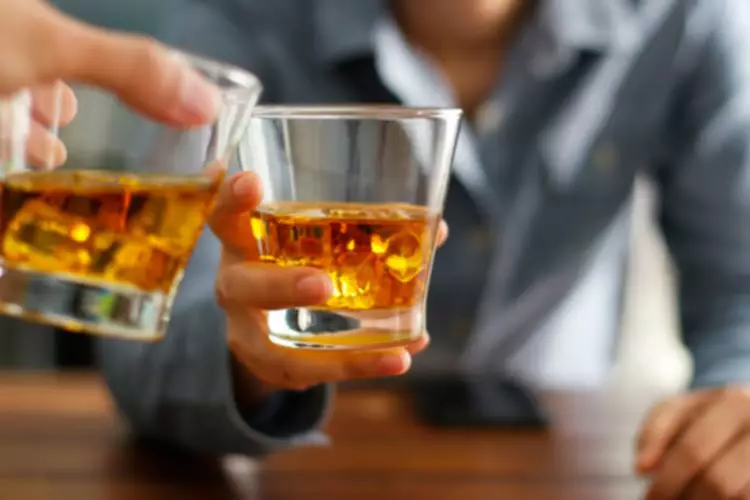EMS differential diagnosis: Drunk or diabetic emergency?

The two other patients died as a result of complications indirectly related to their hypoglycemia-induced neurological changes. Therefore, to avoid alcohol-related hypoglycemia and its consequences, diabetics should consume alcohol only with or diabetes and alcohol blackouts shortly after meals. Diabetes is a serious disease that affects nearly 29 million people in the United States 1.
Symptoms of alcohol intoxication
Whether you have type 1 or type 2 diabetes, it’s important to count your carbs and monitor your blood sugar while drinking. Remember, hard alcohol by itself has zero carbs and will not raise your blood sugar but still can put you at risk for low blood sugar that can occur hours after hard liquor ingestion. The combination of alcohol-induced hypoglycemia, hypoglycemic unawareness, and delayed recovery from hypoglycemia can lead to deleterious health consequences.
- Living with type 2 diabetes often means cutting out or cutting back on foods and beverages that can affect sugar (glucose) levels in the blood.
- Alcohol can increase the risk of a hypo when taking these medicines, so it is advised to not drink on an empty stomach.
- These agents act to lower the patient’s blood sugar levels by decreasing insulin resistance rather than by increasing insulin secretion.
- Using data from Norwegian Patient Registry (NPR) we investigated demographic characteristics, mortality, and physical and mental health comorbidities, among individuals with AIP or DT compared with AD patients.
Foods to Avoid with Diabetes: A Guide to Better Blood Sugar Control
- This strain difference has the potential to provide mechanistic insight under in vivo conditions by allowing for the identification of differentially regulated signal transduction pathways central to glucose homeostasis.
- While it’s true that moderate amounts of alcohol may cause blood sugar to rise, more than one or two drinks of alcohol can decrease your blood sugar level — sometimes causing it to drop to dangerous levels, especially for people with Type 1 Diabetes.
- In one of the most thorough in vitro examination of the effect of alcohol on insulin secretion, alcohol had a dose-dependent inhibitory effect on basal and GSIS in INS-1 cells, dependent in part upon the duration of cell exposure to alcohol 106.
- Diabetics clearly should avoid heavy drinking (i.e., more than 10 to 12 drinks per day), because it can cause ketoacidosis and hypertriglyceridemia.
- If you live with diabetes, you may be wondering if it’s safe for you to consume substances like alcohol, cigarettes, or CBD.
Although many of the human studies described above included men and women, none had sufficient statistical power to discern the presence of any sexual dimorphic response of alcohol on whole-body glucose flux. Only the work by Sumida et al. 29 has attempted to systematically investigate sex differences in this regard and their work suggests that alcohol has a more pronounced inhibitory effect on hepatic gluconeogenesis in chronic alcohol-fed female rats. Unlike protein, fat, or carbohydrate, alcohol doesn’t require insulin to provide energy to the body. Yet, many people assume that alcoholic drinks are loaded with carbs, not realizing that wine and spirits are practically carbohydrate free—with only a trace of carbohydrate in spirits and roughly four grams of carbs in a five-ounce glass of wine. The exception is sweet dessert wines, which pack 14 grams of carb in a tiny three-and-a-half-ounce glass.
What should I do if I drink, or think I am going to drink, more than is recommended?

While there are scattered reports of relatively mild alcohol-induced hypoinsulinemia 23, the majority of studies show basal postabsorptive plasma insulin concentrations do not differ significantly from control values 85,107,108. For example, neither a single oral dose of alcohol 93 nor a 4 h intravenous infusion altered plasma insulin concentrations determined 12 h later. Similarly, no change in the plasma insulin concentration was reported in chronic alcohol-fed rats 14,57, which is consistent with the lack of a significant change in pancreatic insulin content 89. Additionally, 1–3 weeks of moderate alcohol consumption in humans did not alter the basal insulin concentration 61,87 and plasma insulin did not differ after long-term moderate alcohol intake 96.

Who is most at risk?

The differences in muscle glucose uptake between acute and chronic alcohol exposure has been posited to be due to the relatively lower peak BAL achieved in chronic alcohol-fed rats. These data and others presented below suggest that acute ethanol intoxication may not accurately reflect the new metabolic steady-state achieved in during chronic intake. Such differences highlight the importance of including physiologically relevant endpoints in studies focusing on signal transduction. Collectively, these relatively divergent data fail to provide convincing evidence for a consistent inhibitory effect of either acute or chronic alcohol exposure on basal glucose disposal by skeletal muscle. The hormone insulin, which is produced in the pancreas, is an important regulator of blood sugar alcoholism treatment levels.

